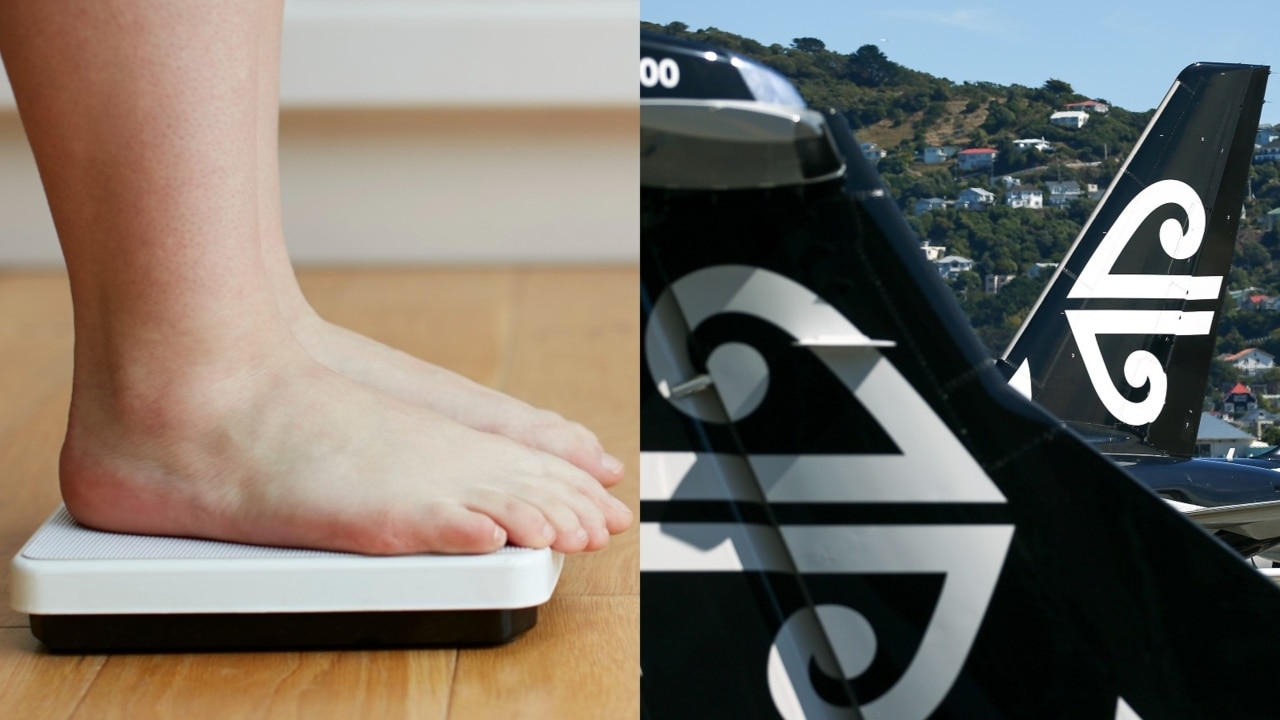Air NZ scraps 2030 carbon emissions target as ‘unachievable’
Air New Zealand has become the first major airline to scrap its ambitious carbon emissions reduction targets, noting there are only so many levers it can pull.

Business
Don't miss out on the headlines from Business. Followed categories will be added to My News.
Air New Zealand has become the first major airline to concede ambitious carbon emissions reduction targets are unachievable by 2030, and has made the decision to dump them.
The kiwi carrier had been aiming to slash its carbon intensity by 28.9 per cent compared to 2019 levels, through the use of sustainable aviation fuel, lower emissions aircraft and other changes.
However in a statement to the ASX, Air New Zealand said many of the levers needed to meet the target were outside of its control and remained “challenging”.
Chief executive Greg Foran said it had also become apparent in recent months and weeks, that potential delays to fleet renewal plans posed an additional risk to the target’s achievability.
“It is possible the airline may need to retain its existing fleet for longer than planned due to global manufacturing and supply chain issues that could potentially slow the introduction of newer, more fuel efficient aircraft in to the fleet,” Mr Foran said.
“As such and given so many levers needed to meet the target are outside of our control, the decision has been made to retract the 2030 target and withdraw from the science based targets initiative network immediately.”

He indicated that work had began to consider a new, near-term carbon emissions reduction target that could better reflect the challenges relating to aircraft and alternative jet fuel availability within the industry.
Last year, 600 million litres of sustainable aviation fuel was produced worldwide, which was more than double that of 2022, but still a mere 0.2 per cent of the airline industry’s needs.
In 2024, production was expected to triple to 1.875 billion litres or about 0.5 per cent of the total aviation fuel supply.
Air New Zealand chair Dame Therese Walsh said the airline remained committed to its 2050 net zero carbon emissions target, which had been adopted by the broader aviation industry.
“Our work to transition away from fossil fuels continues, as does our advocacy for the global and domestic regulatory and policy settings that will help facilitate Air New Zealand and the wider aviation system in New Zealand to do its part to mitigate climate change risks,” said Dame Therese.

Air New Zealand has previously been one of the most outspoken on sustainability issues, and was one of the first to announce plans to develop carbon neutral aircraft for regional routes in partnership with Airbus.
At last year’s CAPA aviation summit in Brisbane, chief sustainability officer Kiri Hannifin even challenged other airlines to consider if they were “worth the carbon”.
In a passionate speech, Ms Hannifin said it was a simple matter of fact that airlines “were connecting people but polluting at the same time” and they all needed to do better.
“For us in aviation, we have to ask ourselves ‘are we worth the carbon?’” Ms Hannifin said.
“That should be a driver of how we conduct ourselves as a business and as a society. It’s also a great moral compass — are we worth the carbon?”
Australian airlines remained wedded to their 2030 targets, including a 22 per cent reduction in carbon intensity for Virgin Australia, and 25 per cent emissions reduction for Qantas.
Both were banking on increased production of sustainable aviation fuel and lower emissions aircraft to achieve the interim targets.
As yet Australia is yet to produce any sustainable aviation fuel, despite being rich in the sort of material — agricultural waste and feedstock — used to make the alternative fuel.
Asked to comment on Air New Zealand’s decision to scrap 2030 targets, the International Air Transport Association said airlines were not cutting back on their 2050 commitment to net zero.
“Our roadmaps validate the achievability of this, but we are also reliant on the right supportive measures from governments,” said IATA spokesman Albert Tjoeng.
“We need scale up of all solutions including SAF production as well as emerging technological solutions including the use of hydrogen and carbon removals.”
More Coverage
Originally published as Air NZ scraps 2030 carbon emissions target as ‘unachievable’





